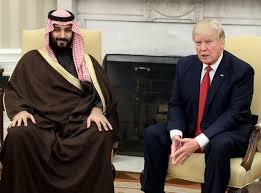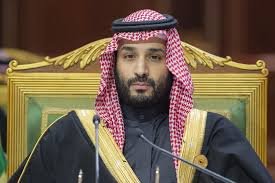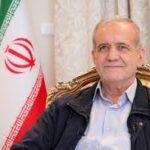Mohammed bin Salman Early Life and Rise in the Royal Court
Born on August 31, 1985, Mohammed bin Salman bin Abdulaziz Al Saud (MBS) grew up in Riyadh as the favored son of Prince Salman bin Abdulaziz, then governor of Riyadh. Unlike previous Saudi leaders educated abroad, MBS studied law at King Saud University, immersing himself in Islamic jurisprudence while quietly developing a fascination with technology and global economics. Few know that his first government role came at just 21, when his father appointed him as an advisor—an unusually young age for royal political involvement. His early influence became apparent when he orchestrated the 2015 transfer of power from King Abdullah to his father, King Salman, bypassing older princes in the succession line.
A little-known story reveals that MBS spent months studying Silicon Valley business models before launching Vision 2030, even meeting secretly with tech CEOs during unofficial trips to the U.S. His vision for Saudi Arabia was shaped by these experiences, blending conservative Islamic values with aggressive modernization.
The Sudden Ascent to Power of Mohammed bin Salman
MBS’s rapid rise shocked Saudi Arabia’s political establishment. In 2015, King Salman appointed him as Defense Minister, despite his lack of military experience. Within months, he launched the controversial Yemen war, aiming to prove his decisiveness. The conflict, criticized for civilian casualties, became a defining moment in his leadership—brutal yet calculated.
In June 2017, at just 31, he became Crown Prince after a palace coup that sidelined his cousin, Mohammed bin Nayef. The move involved late-night arrests, revoked travel privileges, and forced loyalty pledges from senior royals. MBS’s consolidation of power was unprecedented in Saudi history, breaking decades of consensus rule among senior princes.
Vision 2030: A Bold Economic Transformation
MBS’s Vision 2030 plan aims to wean Saudi Arabia off oil dependence through massive investments in tech, tourism, and renewable energy. The $500 billion NEOM megacity project—with its futuristic “The Line” urban design—has drawn skepticism but showcases his ambition. Lesser-known details include his personal intervention to attract top AI researchers by offering tax-free salaries and luxury accommodations.
He also pushed for social reforms, including allowing women to drive and reopening cinemas, while maintaining strict control over dissent. Behind the scenes, these changes were carefully calculated to modernize the economy without destabilizing religious conservatives.
The Khashoggi Crisis and Global Backlash
The 2018 murder of journalist Jamal Khashoggi in Istanbul’s Saudi consulate became a defining scandal. CIA reports suggested MBS likely approved the operation, though he denied involvement. The fallout saw international investors pull back, but MBS weathered the storm through calculated diplomacy, including a 2022 visit to the White House where President Biden fist-bumped him despite earlier condemnation.
A little-discussed aspect of the crisis was MBS’s subsequent crackdown on rogue operatives—dismissing Saud al-Qahtani, his once-powerful media advisor, and restructuring intelligence agencies to centralize control.

The Purge of Rivals: Ritz-Carlton Arrests
In November 2017, MBS detained over 200 princes and businessmen in Riyadh’s Ritz-Carlton hotel, framing it as an anti-corruption campaign. Billionaire Alwaleed bin Talal was among those held until he reportedly surrendered billions in assets. The move consolidated MBS’s financial and political control, but leaked documents later revealed many detainees were tortured, with some dying in custody.
The purge sent shockwaves through Saudi elites, ensuring no internal opposition could challenge his reforms. It also allowed him to redirect billions into sovereign wealth funds for Vision 2030 projects.
Sports Washing and Global Influence Campaigns
MBS has aggressively used sports to rebrand Saudi Arabia, from hosting WWE events to bankrolling LIV Golf. The 2021 takeover of Newcastle United F.C. and bids for Formula 1 and boxing matches are part of a strategy to position the kingdom as an entertainment hub.
Less visible is his influence in global media—investing in Hollywood through Saudi’s Red Sea Film Festival and quietly acquiring stakes in video game companies like EA and Nintendo through the Public Investment Fund (PIF).
Futuristic Megaprojects and Economic Gamble
Beyond NEOM, MBS is betting on projects like Qiddiya (an entertainment city) and the Red Sea tourism initiative. His most controversial move? The 2022 announcement of “The Cube,” a massive mirrored skyscraper in Riyadh, which architects say may be structurally unfeasible.
Economists warn that Vision 2030’s success hinges on oil prices remaining high, but MBS has shown willingness to take risks—including cutting OPEC+ oil production in 2023 despite U.S. pressure, a move that strained relations with Washington.
The Future King: Challenges Ahead of Mohammed bin Salman
As MBS prepares to become king, challenges loom: youth unemployment, regional tensions with Iran, and balancing U.S. ties with China’s growing influence. His recent diplomatic thaw with Qatar and Israel signals pragmatic flexibility, but human rights abuses (like the death penalty for minors) continue drawing condemnation.
One certainty: MBS will rule Saudi Arabia for decades, shaping not just his nation but the entire Middle East.
Go to main page


